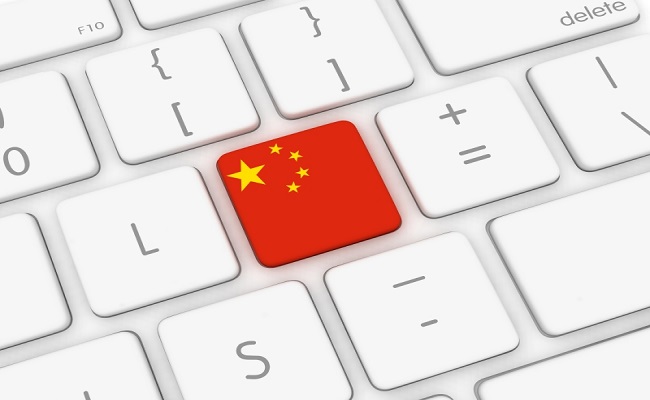This week, Tencent launched China’s first private bank, local governments vowed to crack down on ride-hailing apps, and with China set to miss its growth targets, it is being speculated that the much needed economic rebalancing has finally kicked in.
China’s rebalancing continues
The year 2014 was a turning point for the Chinese economy—the country is very likely to have missed its annual growth target for the first time in more than a decade (official numbers are set to come on January 20). According to a Reuters’ poll of 31 economists, China’s annual GDP growth may have slowed to 7.2%, the lowest rate since the global financial crisis.
Last month, the 49.6 reading of the HSBC/Markit manufacturing purchasing managers’ index (PMI) indicated that the pillar of the Chinese economy continued to weaken; but new data released this week—the service sector PMI, is showing that the shift towards a more consumption-driven economy is underway. The December indicator picked up to 53.4 from November’s 53.0, also the highest reading in the fourth quarter. The employment sub-index reached an 18-month high as businesses in this sector expanded.
Another index echoing this phenomenon is the China Consumer Sentiment Indicator by Australian bank Westpac, which rose slightly in December from November. But some economists warn that while consumption appears to have been picking up in recent months, overall demand is not at a desirable level, which means that the government may further loosen its monetary policy in 2015, including cutting interest rates and banks’ reserve ratios.
On the other hand, Beijing may also be seeking more investment to sustain growth. Sources told Bloomberg this week that China plans to push forward hundreds of infrastructure projects worth RMB 7 trillion ($1.1 trillion) this year. The projects are spread across seven industries including oil and gas, healthcare clean energy, transportation and mining. China’s top economic planner, the National Development and Reform Commission, didn’t confirm the story; but a researcher of the commission told the Chinese media that it is unlikely that the new investment will go into those overheating sectors.
Private Banks Get the Government’s Blessings
One key problem of China’s financial system is the low efficiency of the country’s state-owned banks. But that may change now because of new competitors from the private sector.
On Tuesday, internet giant Tencent launched China’s first privately-owned bank in the southern city of Shenzhen. Known for its popular messaging app WeChat, Tencent is the biggest owner (about 30%) of WeBank, an online bank with no physical branches. The bank targets small businesses and individuals in need of micro-loans, and currently is only open to selective customers who receive invitations. The first loan it gave out, witnessed by the Chinese Premier Li Keqiang (who reportedly hit the “enter” key during the launch ceremony), is a RMB 35,000 loan to a truck driver.
The operation of WeBank is still tiny compared with the big banks, but it’s expected to expand in the coming months along with other private banks. One product expected to be launched is online shopping credit, which consumers can use without interest for two weeks.
Other private banks are set to follow suit. In March last year, Beijing kicked off a pilot program that will give out five private bank licenses to 10 private investors, including Tencent, Alibaba and Fosun. Alibaba and Fosun are planning to jointly launch Zhejiang Wangshang Bank (meaning Bank of Internet Merchants) soon.
China’s central bank, the People’s Bank of China (PBOC), also plans to give licenses to eight companies to conduct credit reporting businesses. This week, PBOC told the companies (again, including Tencent and Alibaba) to get ready to launch in six months. It also released a proposal to establish an online identification system so that people can open bank accounts without going to a physical branch.
But some analysts warn that people shouldn’t get too excited about those private banks in the short term, as Beijing is likely to keep things slow to maintain the stability of the financial system.
Consumer Protection or Power Struggle?
While the state is on the retreat in the financial sector, local governments are tightening the noose on app-based ride-hailing companies. On Wednesday, Beijing’s transportation bureau told the public that it will start cracking down on “illegal cabs”, including those “hidden behind” technology companies like Didi Dache and Uber.
China’s two leading players in the business, Didi Dache and Kuaidi Dache, started serving taxi companies in 2013. But since last October, both companies rolled out their own Uber-like pickup services, competing directly with government-licensed cab companies. Authorities in Shanghai, Chongqing and Shenyang have also claimed that the services are illegal and vowed to impose heavy fines on drivers. Although the companies are working with licensed car rental firms, regulators say, they don’t have the legal permit to assign drivers to those cars.
Authorities also claim that the clampdown aims to protect riders’ interests in the face of accidents, despite the fact that the “illegal” services are superior to traditional cabs. Proponents of the companies argue that instead of declaring a war, the government should work with the players to establish new regulatory schemes to legalize them. But doing that will not only encroach upon the vested interests of taxi companies, but also the government’s power in the transportation system, which includes deciding the number of taxis and taxi fares. The system has been accused of being a corrupt monopoly for years, but no one knows if the rise of ride-hailing companies will eventually help end it.




















